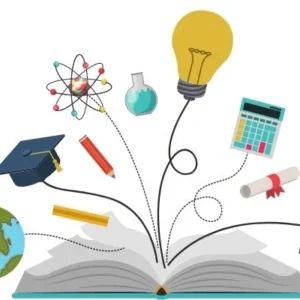A new OECD report reveals that educational attainment is at an all-time high, with approximately 48% of young adults in OECD countries completing tertiary education, up from 27% in 2000. Graduates tend to benefit from higher earnings, more stable employment, and better health outcomes. The report, Education at a Glance 2025, provides comparable national statistics on the state of education worldwide and highlights both achievements and ongoing challenges.
Despite overall growth in tertiary attainment, family background continues to strongly influence who pursues higher education. In 2023, only 26% of young adults from less-educated families held a tertiary qualification, compared with 70% from highly educated households. Financial barriers and limited academic and social support often prevent disadvantaged students from enrolling or completing their studies.
Low completion rates remain a critical concern, undermining the return on public investment, exacerbating skills shortages, and restricting access to opportunities. Across 32 OECD and partner countries, only 43% of bachelor’s students graduate on time, rising to 70% within three additional years. Completion rates are lower among men, with just 63% graduating compared to 75% of women. OECD Secretary-General Mathias Cormann emphasizes that high-quality tertiary education equips learners to navigate labour market transformations driven by population ageing, artificial intelligence, digitalization, and the green transition. Aligning education with labour market needs is crucial to reduce skills mismatches, which negatively affect wages, productivity, and well-being.
The report identifies several factors contributing to low completion rates, including mismatches between student expectations and programme content, inadequate academic preparation, and insufficient support systems. Strengthening secondary education in academic preparation and career guidance, along with clearly structured tertiary programmes and targeted support for at-risk students, could improve outcomes. Tertiary systems are encouraged to maintain rigorous standards while expanding access and tailoring support to diverse student backgrounds and career goals.
Teacher quality and workforce stability are also highlighted as essential for high-performing education systems. Teacher shortages, high turnover, and recruitment challenges vary by country. In Denmark, Estonia, and England, nearly 10% of teachers resign annually, whereas fewer than 1% do so in France, Greece, and Ireland. Introducing second-career teachers, improving working conditions, and providing career progression opportunities can help address shortages and strengthen retention.
Education at a Glance 2025 examines education systems across the OECD’s 38 member countries, as well as Argentina, Brazil, Bulgaria, China, Croatia, India, Indonesia, Peru, Romania, Saudi Arabia, and South Africa, highlighting the importance of equitable access, high-quality teaching, and alignment between education and labour market needs.







